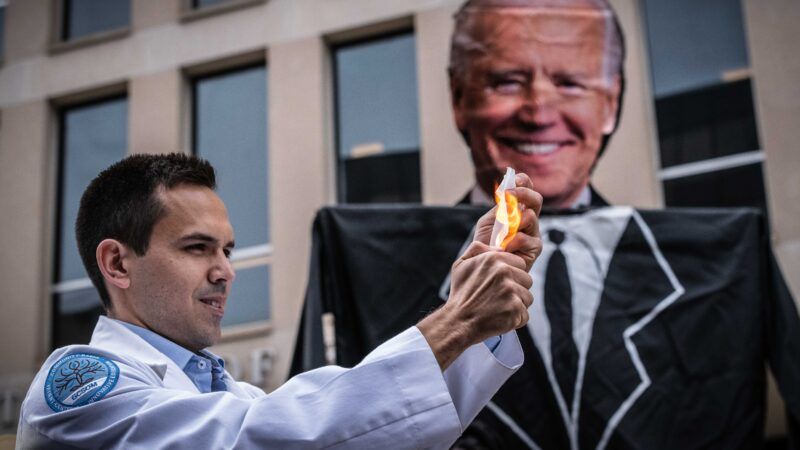Biden's Student Debt Relief Plan Will Worsen Inflation
"Student loan relief would lead some people to spend more," warns Obama economic advisor and Harvard economist Jason Furman

When President Joe Biden and his fellow Democrats were pushing the passage of a $1.9 trillion stimulus bill in early 2021, economist Larry Summers warned that the American Rescue Plan would likely trigger runaway inflation.
He was ignored, but he was ultimately proven right.
Now, Biden is prepared to announce a broad-based student loan forgiveness plan that will erase between $10,000 and $20,000 in debt for Americans earning as much as $125,000 this year. The proposal also reportedly extends an ongoing payment moratorium through the end of the year. Biden is expected to announce the proposal in televised remarks from the White House later this afternoon.
Summers, a veteran of both the Clinton and Obama administration, is once again warning that the policy could worsen already high inflation.
"Student loan debt relief is spending that raises demand and increases inflation," Summers wrote on Twitter yesterday. "It consumes resources that could be better used helping those who did not, for whatever reason, have a chance to attend college. It will also tend to be inflationary by raising tuitions."
There are several good points there worth unpacking.
First, even though student debt relief might not look like spending the way we traditionally think of it—the government isn't cutting checks or awarding grants here, the way it did in the American Rescue Plan, for instance—economically, it will function the same way.
Because money is fungible, student loan borrowers will effectively now have extra discretionary income equal to whatever they would have had to pay towards that $10,000 in loans. That might sound great, but remember that the standard definition for inflation is what happens when a larger supply of money is chasing the same amount of goods and services. Money that would have been spent paying back loans will, upon the conclusion of the repayment moratorium, remain circulating in the regular economy. Ending the repayment moratorium without passing forgiveness would've been deflationary by returning U.S. dollars to Treasury.
The last point that Summers makes is also a good one. An entirely predictable response to a $10,000 student loan forgiveness plan would be colleges and universities hiking tuitions—while telling future students not to worry about the rising sticker prices because, hey, a portion of your loans will likely get forgiven anyway.
In short, student loan forgiveness will contribute to inflation on both macroeconomic and microeconomic levels, Summers explained. "Unreasonably generous student loan relief" would contribute to generally higher prices throughout the economy, he tweeted, while simultaneously "encouraging college tuition increases."
Summers is not the only center-left economist to warn about the potential ramifications of the Biden administration's short-sighted student debt relief plan. Jason Furman, a Harvard economist and former head of the White House's Council of Economic Advisors during the Obama administration, tweeted on Monday that student debt relief "benefits recent college grads and hurts most everyone else, both rich and poor."
"Student loan relief is not free," Furman wrote. The roughly $300 billion debt forgiveness plan would be paid for, he added, in part by the 87 percent of Americans "who do not benefit but lose out from inflation."
"Student loan relief would lead some people to spend more," Furman continued. "We can't make more so others would consume less. The way that happens is inflation."
But one does not need to be a former Treasury secretary or White House economic advisor to understand that debt forgiveness is inflationary, it seems. A poll conducted earlier this month by CNBC found that 59 percent of Americans worry that forgiving student debt will worsen inflation.
The key difference between the Biden administration and center-left economists like Summers and Furman is that the latter group are politically liberal but acknowledge that markets and prices are actually real things.
The White House, meanwhile, continues to pursue economic policies with total disregard for the trade-offs that come from them. It would be nice if you could end poverty by printing money and dumping it into bank accounts in the same way that it would be nice if you could jump out of a plane with no parachute and float gently to the ground. But ignoring reality won't lead to productive outcomes in either situation.
Fifteen months ago, Biden ignored economists' warnings and the rest of America got burned. Will it be any different this time around?


Show Comments (66)